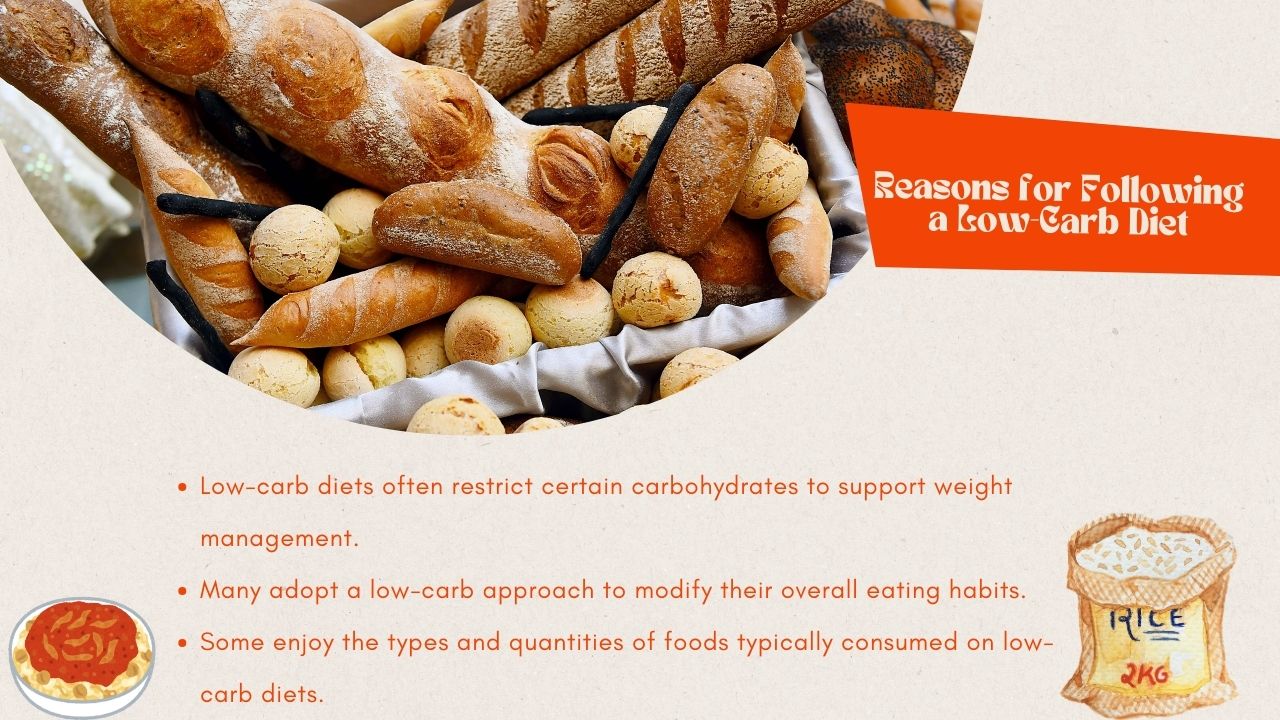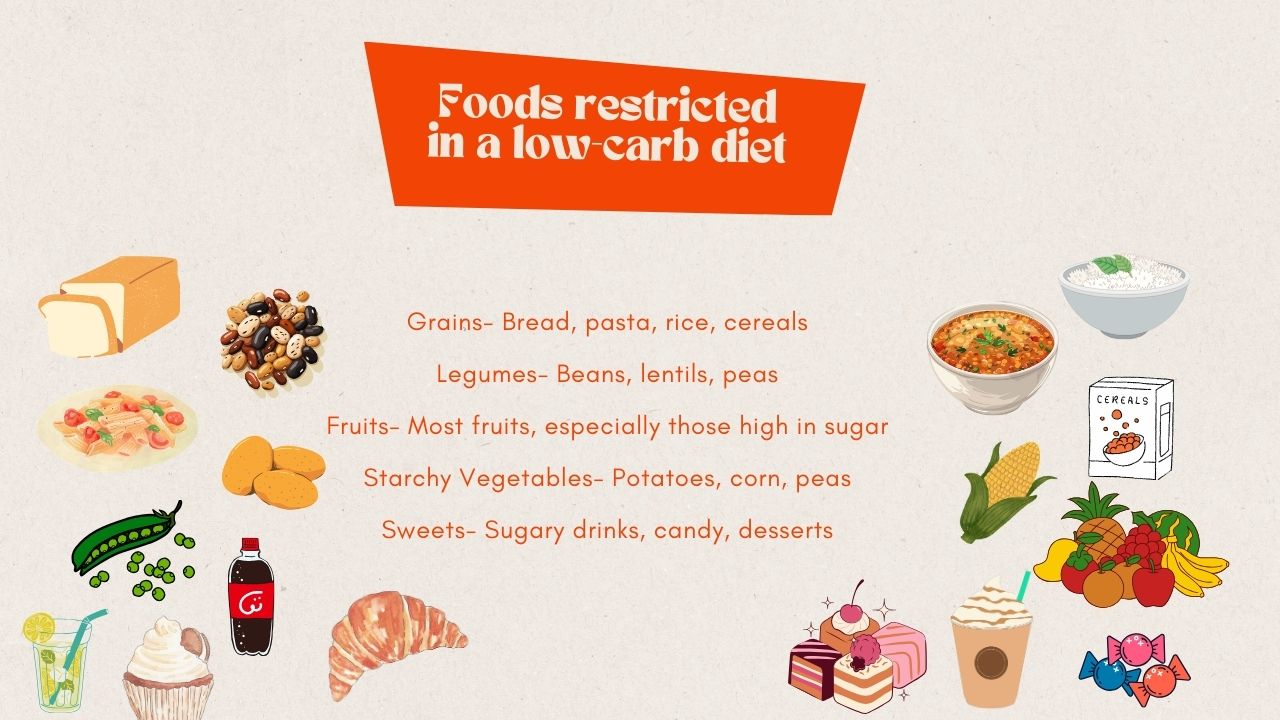Weight Loss And Carbs- To Give Up or Not?

The debate around weight loss often centers on the basic dietary approach – low-carb or low-fat? A recent study sheds light on this, though a definitive answer remains a mystery.
Advocates of low-carb diets strongly believe that carbohydrate restriction is important for fat burning. Their argument relies on the premise that reducing carbs lowers insulin levels, a condition they deem essential for the body to utilize stored fat for energy.
A recent study in the New England Journal of Medicine suggests that successful weight loss may rely less on strictly limiting specific food groups and more on adopting a sustainable eating pattern.
Can weight be lost by not eating carbs?
Yes, reducing carbohydrate intake can contribute to weight loss.
When you replace carbohydrates with sources rich in protein, fiber, and healthy fats, you tend to feel fuller for longer. This often leads to reduced overall calorie consumption, which is a key factor in weight loss.
While some research suggests that low-carb diets may offer initial weight loss benefits, the long-term effects are less clear.
Therefore, completely eliminating carbohydrates from your diet may not be necessary for weight loss. A more sustainable approach often involves gradually reducing carbohydrate intake while focusing on a moderate overall calorie deficit.

Note– It is important to consult with your healthcare provider before starting any weight-loss diet, particularly if you have existing health conditions such as diabetes or heart disease.
Typical Foods for a Low-Carb Diet
Low-carb diets primarily emphasize protein sources and non-starchy vegetables. They typically restrict or limit-

Some low-carb plans may allow limited amounts of certain fruits, vegetables, and whole grains.
Carbohydrate Intake
A typical low-carb diet restricts carbohydrate intake to 20-57 grams per day, providing 80-240 calories from carbohydrates. Some very low-carb diets may significantly restrict carbohydrates initially, gradually allowing for increased intake over time.
Contrast with Dietary Guidelines
Dietary Guidelines for Americans recommend around 45-65% of daily calories from carbohydrates. For a 2,000-calorie diet, this translates to 225- 325 grams of carbohydrate amounting to 900-1,300 calories.
Results of Following A Low-Carb Diet
- Calorie restriction and increased physical activity are fundamental for weight loss.
- Low-carb diets, particularly very low-carb versions, may initially lead to more rapid weight loss compared to low-fat diets.
- Long-term studies often show less significant weight loss advantages for low-carb diets.
- Weight loss may also be attributed to increased satiety from higher protein and fat intake, leading to reduced overall calorie consumption.
- Low-carb diets focusing on healthy sources of carbohydrates, fats, and proteins may contribute to reduced risks of type 2 diabetes and heart disease.
- Any diet that facilitates weight loss can generally improve blood sugar and cholesterol levels, at least in the short term.
Downsides of a No-Carb Diet
Constipation
- By severely limiting fruits, vegetables, beans, and whole grains, no-carb diets significantly reduce fiber intake.
- Fiber plays an important role in maintaining regular bowel movements.
- This restriction can lead to constipation and digestive issues.
Low Energy
- Carbohydrates are the primary source of fuel for the body.
- Severely restricting carbohydrates can lead to decreased energy levels and fatigue.
Nutrient Deficiencies
- No-carb diets may not provide adequate amounts of essential vitamins and minerals, such as-
- Potassium
- B vitamins
- Vitamin C
- These nutrients are abundant in fruits, vegetables, and other plant-based foods.
- Furthermore, increased urination, often associated with carbohydrate restriction, can contribute to deficiencies in sodium and potassium over time.
- No-carb diets may not provide adequate amounts of essential vitamins and minerals, such as-
Study Challenging Low-Carb Diet Supremacy for Fat Loss
A study conducted by Kevin Hall and his colleagues at the National Institutes of Health investigated the impact of low-carb and low-fat diets on weight loss.
Nineteen obese volunteers participated in a controlled study where they were fed precise diets within a research facility for two weeks. One group followed a low-carb diet, while another followed a low-fat diet, both resulting in a 30% calorie reduction. After a break, the groups switched diets.
Key Findings
- Both diets led to fat loss- While the low-carb diet initially lowered insulin levels and increased fat burning as predicted, both diets resulted in approximately 1 pound of fat loss per two weeks and a total weight loss of about 4 pounds.
- Calories matter most- The study demonstrates that calorie restriction, regardless of whether it comes from fat or carbohydrates, is the primary driver of fat loss.
Expert Perspectives
- Susan Roberts, a nutrition professor at Tufts University, praised the study’s high quality and its ability to dispel the myth that low-carb diets are essential for fat loss.
- Roberts emphasized the importance of long-term adherence to any diet. She pointed out that while the study focused on physiological effects, individual preferences and the ease of adhering to a particular diet also play crucial roles in successful weight management.
The study findings suggest that while both low-carb and low-fat diets can be effective for weight loss, the overall calorie reduction is the most critical factor. The researchers emphasize that individual preferences and dietary sustainability should also be considered when choosing a weight loss approach.
